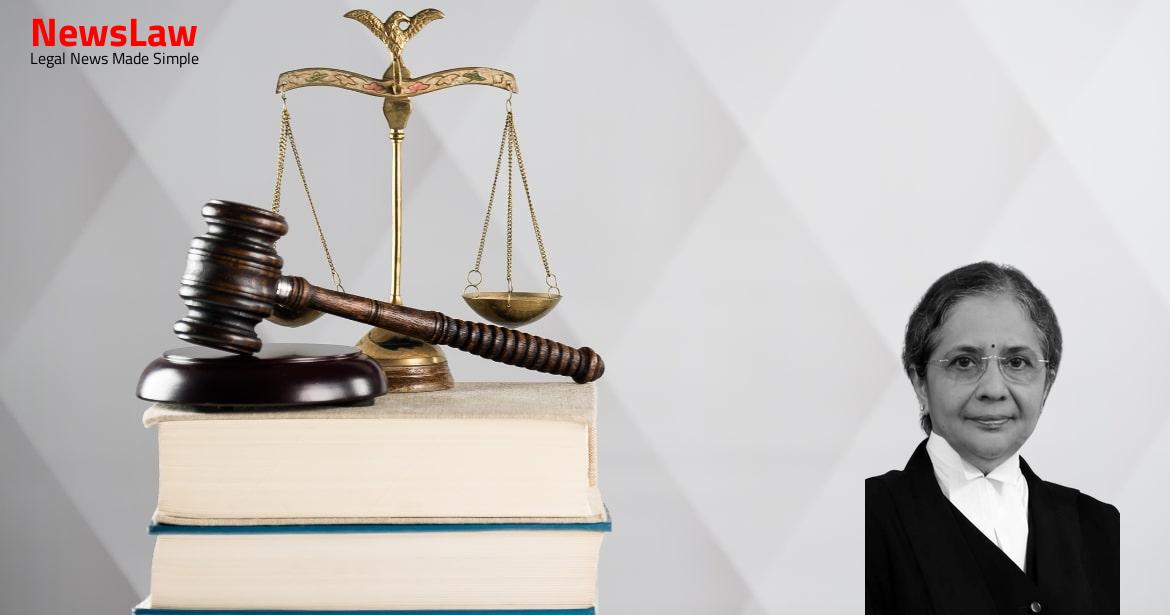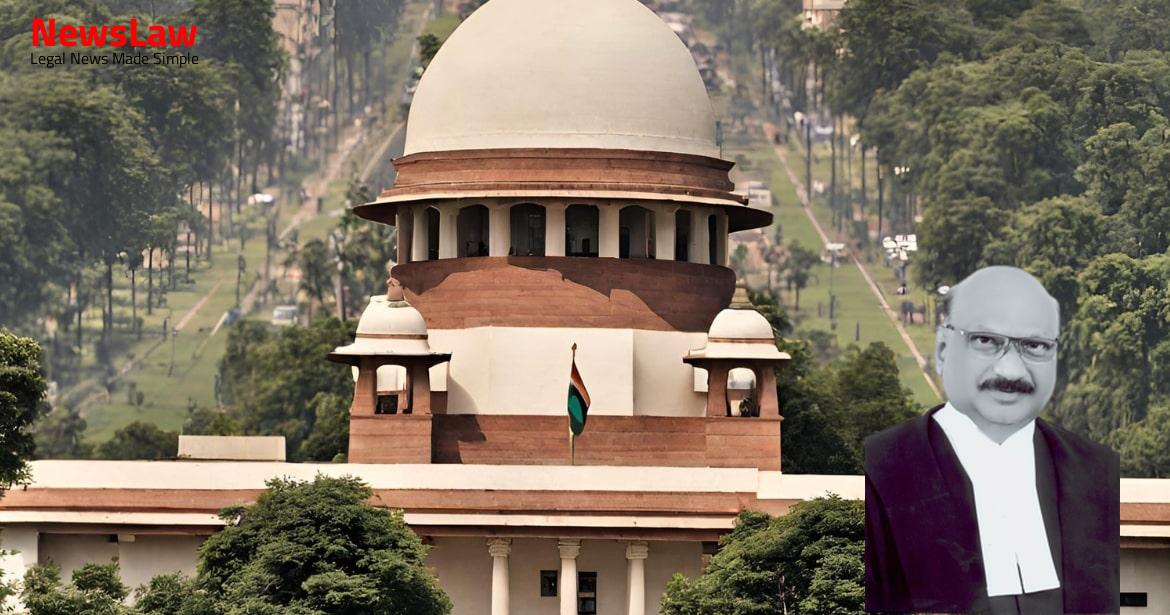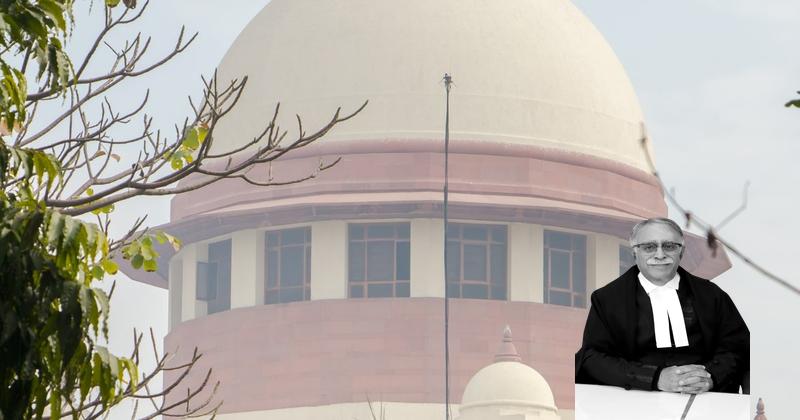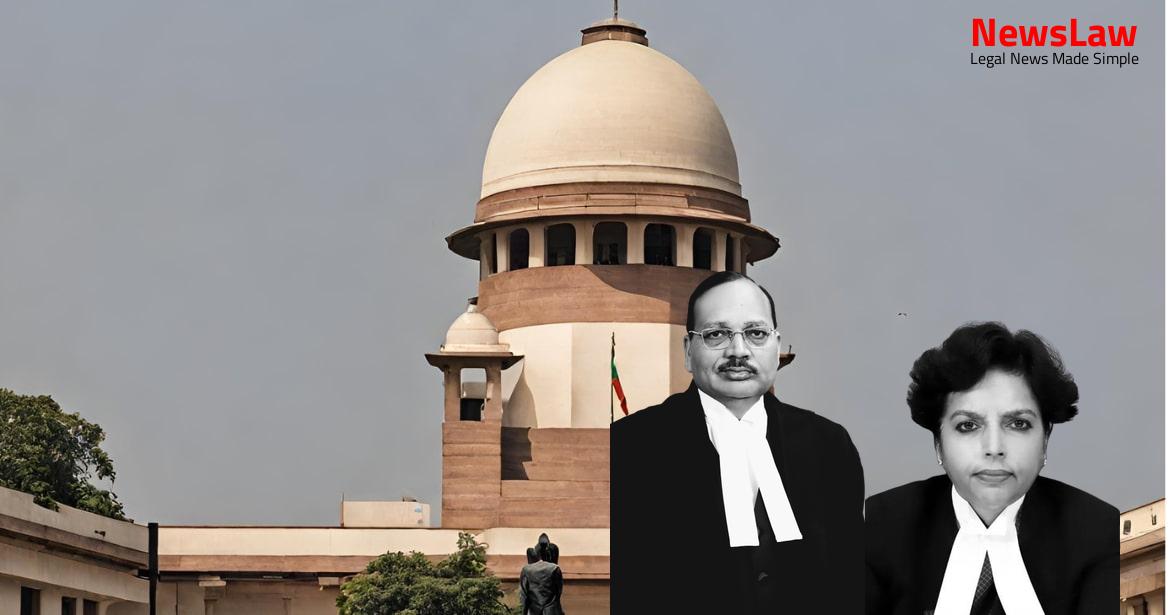Explore the legal nuances surrounding widow’s rights and property ownership under the Hindu Succession Act. The court’s in-depth analysis highlights the significance of settled possession, maintenance rights, and the transformative impact of Section 14(1) on property ownership for Hindu widows. This case summary provides valuable insights into the evolving landscape of property rights in the context of familial structures and societal obligations under Hindu law.
Facts
- Appeal directed against judgment and decree dated 20.07.2017 of the High Court of Judicature for Rajasthan.
- S.B. Civil First Appeal No.120 of 1989 filed under Section 96 read with Order 41 of CPC.
- High Court allowed the First Appeal, setting aside the trial court’s judgment and decree dated 05.08.1989.
- Trial court was the Additional District & Sessions Judge, Class-1, Jaipur.
- Civil Suit No. 56/73 was dismissed by the High Court.
- Plaintiff Daulalji was the predecessor of the present appellants.
- Defendant No. 1 Bhonri Devi was the predecessor of the present respondent Nos. 1 to 3 and others.
- The original plaintiff Daulalji filed a suit seeking possession of the suit property and mesne profits.
- Plaintiff claimed to be adopted by Sri Bakshji and became the owner of the suit property by virtue of Hindu Succession Act, 1956.
- Harinarayanji executed a Will in favor of the plaintiff, making him the owner of the suit property upon his death in 1953.
- The suit was filed against defendant No.1 Bhonri Devi and tenants of the property.
- The original parties to the suit passed away, and their legal representatives continued the case.
- Defendant No.1 Bhonri Devi claimed ownership of the property and denied the existence of the Will in favor of the plaintiff.
Also Read: Analysis of Bail Conditions in Criminal Appeal No. INSC 48/2024
Arguments
- Appellants argued that the suit property is ancestral and should remain within the family, suggesting that the respondents, who are nephews and niece, have no claim to it.
- No statutory or customary law of inheritance was established to presume limited ownership in favor of the defendant Bhonri Devi in the suit property.
- Hindu Woman Right to Property Act, 1937 was deemed inapplicable to the case as the suit property was located in Jaipur where the Act did not apply.
- Bhonri Devi’s claim of becoming a full owner under Section 14(1) of the Hindu Succession Act, 1956 was contested by the appellants.
- Maintenance rights do not automatically create a charge on the property.
- The High Court’s decision regarding limited rights in favor of Bhonri Devi after Ganeshnarayanji’s death was challenged by the appellants.
- Existing limited ownership is necessary for Section 14(1) to apply; without it, the provision is inapplicable.
- Right to maintenance is considered a right against properties of the joint family, not a specific property.
- The exclusive possession of widow of HUF property creates a presumption that the property was earmarked for her maintenance.
- Defendant Bhonri Devi’s exclusive possession was never questioned after the death of Harinarayanji.
- Mr. Pallav Shishodia supported the findings of the High Court regarding widow’s right to the property.
- The expression ‘possession’ in Section 14(1) should be given a wide meaning to include actual and constructive possession.
- The expression ‘acquire’ should also be interpreted broadly to include acquisition by possession.
- The pre-existing right of maintenance for a widow cannot be denied under Section 14(1) of the Act of 1956.
- The consequences of Section 14(1) apply to a Hindu widow once the pre-existing right is recognized.
Also Read: Conviction Upheld for Murder and Concealment of Body
Analysis
- The possession of the widow must be under some vestige of a claim, right, or title, not of a rank trespasser.
- The term ‘restricted estate’ used in Section 14(2) is broader than ‘limited interest’ in Section 14(1) and includes any limitation on the transferee.
- Acts like the Hindu Women’s Right to Property Act 1937 merely recognized existing positions under Hindu Law.
- A Hindu woman’s right to maintenance is a tangible right against property based on the marital relationship.
- Exclusive settled possession of HUF property by a widow creates a presumption of it being for maintenance.
- Settled possession of property can be a basis for acquiring full ownership under Section 14(1) of the 1956 Act.
- The Act aims for a liberal construction in favor of females to advance socio-economic objectives.
- Documents like rent notes executed in the widow’s name can support her claim to property.
- Analyzing the Will of the deceased and the widow’s possession is crucial in determining ownership rights.
- The widow’s settled possession in lieu of maintenance can result in full ownership under Section 14(1) despite restrictions.
- The widow’s right to maintenance from the husband’s estate is a significant factor in ownership claims.
- The Act differentiates between rights acquired at partition, maintenance, and arrears of maintenance under Section 14(1) and (2).
- The scope of Section 14(1) is broad to ensure female ownership rights, even without physical possession of the property.
- The right to maintenance of a Hindu woman is not an empty formality but a tangible right against property.
- This right existed in Hindu law before the enactment of specific statutes.
- The Acts of 1937 and 1946 only recognized and gave statutory backing to this pre-existing right.
- For a Hindu widow, the right to maintenance is a pre-existing right from Hindu law and not a creation of subsequent statutes.
- The widow’s right to maintenance is based on the social and temporal relationship between the husband and wife.
- The widow’s possession of her husband’s property entitles her to maintenance and the right to retain possession.
- Section 14(1) of the Hindu Succession Act, 1956 widens the scope of ownership for Hindu widows
- The term ‘possessed by’ and ‘acquired’ in Section 14(1) are broad and include property ownership
- The widow’s limited interest transforms into absolute ownership when possessing the property, regardless of acquisition before or after the Act
- The High Court ruled correctly that Bhonri Devi received full ownership through her pre-existing maintenance rights in the property
Also Read: 1991 Decree Invalid: No Determination of Rights in Property Dispute
Decision
- The present appeal lacks merits
- Dismissal of the appeal
Case Title: MUNNI DEVI ALIAS NATHI DEVI (DEAD) THR LRS. Vs. RAJENDRA ALIAS LALLU LAL (DEAD) THR LRS. AND ORS. (2022 INSC 590)
Case Number: C.A. No.-005894-005894 / 2019



